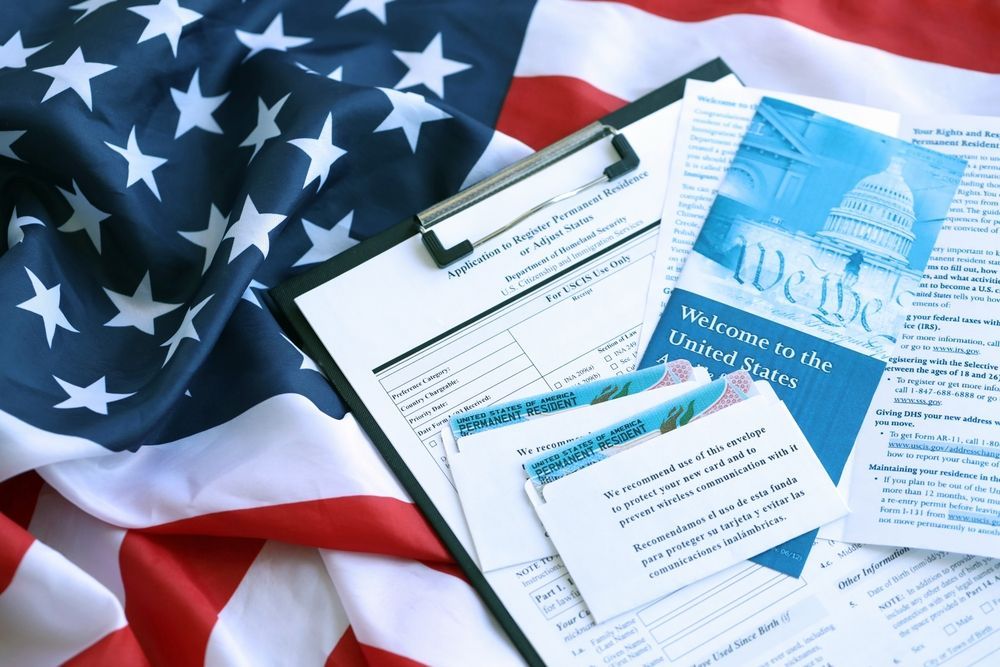What to Know About Family-Based Immigration | Malvern Burnett ALPC

Family-based immigration accounts for approximately 68 percent of all legal immigration into the United States each year. Once a person becomes a lawful permanent resident (LPR) they can act as a sponsor to bring family members into the country by helping them to earn a “green card.”
Family-based immigration has also been called “chain migration” and the process has come under tough scrutiny. Immigrants undergo a strict vetting process and face the difficult task of negotiating bureaucratic hurdles. That’s why it’s crucial to work with an experienced family-based immigration attorney when attempting to reunite with loved ones.
What is family-based immigration?
Family-based immigration is a popular way for foreign-born individuals to gain entry into the United States. The process of family-based immigration requires applicants to have a close relationship with an individual who is already living in the United States, such as a parent, spouse, or child. This close relationship must be established and documented before any other steps in the immigration process can be taken.
Who can get a family-based immigration visa?
The first step to family-based immigration is to determine if you are eligible for a family-based visa. Eligibility requirements vary from country to country but typically include proof of residence, age, and financial stability. Once eligibility has been established, an individual must then file for an immigrant visa petition. This petition is the primary document used to prove that the applicant has a close relationship with an individual residing in the United States.
U.S. Citizenship and Immigration Services then reviews family-based immigration applications under two basic headings. These include immediate relatives or family preference applications.
Immediate relatives of U.S. citizens include the following:
- Spouses
- Children who are unmarried and under 21
- Children who are adopted abroad
- Children who are adopted in the U.S.
- Parents over 21 years of age
The family preference categories of a U.S. citizen or LPR are as follows.
- Unmarried sons and daughters
- Spouses and children of sons and daughters
- Minor children
- Unmarried sons and daughters over 21
- Brothers, sisters as well as their spouses and minor children over the age of 21
U.S. citizens and LPR immigrants cannot sponsor extended family members such as grandparents, cousins, aunts, and uncles under the current immigration system.
Sponsoring a family member tends to be more difficult than many believe. The maximum number of “family preference” visas cannot exceed 480,000 each year. That number was set by Congress in 1990 and remains unchanged. Although 480,000 seems like a high number, immediate relatives are generally prioritized and those that receive a green card are deducted from the 480,000 pool. Spouses and children comprise nearly 70 percent of all family-based immigration.
Current immigration law only assures a maximum of 226,000 family preference visas, provided applicants meet the stringent vetting qualifications. Of those, 40 percent go to spouses and minor children of LPRs. Compounding the difficulty in getting a family-based immigration application approved, the law has a 7-percent per-country limit on family visas.
Family-Based Immigration Categories
The United States provides a variety of different categories for individuals looking to pursue family-based immigration. These categories are intended to reunite families and help immigrants gain lawful permanent resident status. The primary categories include the following:
- Fiancé/Fiancée Visas
- Immediate Relative Visas
- Family Preference Visas
- Child-Specific Visas
- Adoption Visas
- Humanitarian Visas
- Refugee/Asylee Status
- U Visas, Violence Against Women Act (VAWA), and Special Immigrant Juvenile Status (SIJS)
The requirements for each of these categories vary and the process can become complex. It is important to understand the different options available to you in order to determine which category best suits your needs. Reaching out to an experienced immigration attorney or service provider can help ensure that your application is properly prepared and submitted. Doing so will also minimize the chances of being delayed or denied due to mistakes on your application.
No matter how you choose to pursue family-based immigration, it is important to understand that the process can take time. The U.S. Citizenship and Immigration Services typically processes applications within one year, but delays can occur for a variety of reasons.
How long does a family-based immigration application take?
The USCIS tends to process green cards for immediate family immigrants who meet the qualifications relatively quickly. The key to a streamlined green card is understanding the process, documentation, and bureaucratic hurdles.
Missteps often cause LPRs and U.S. citizens to resubmit information and applications. The process for family preference sponsorships can take many years, even decades in some cases. The 7-percent per-country limit has caused long wait lists for high-volume countries. The number of family preference applications has hit more than 4.5 million with nearly 4 million on wait lists.
Applicants can improve their wait time by having their applications well documented and filed properly resulting in quick approval. That’s why it’s essential to work with an experienced
family-based immigration attorney when attempting to sponsor an immediate or extended family member. Those interested can contact Louisiana and Mississippi immigration attorneys at The Law Offices of Malvern C. Burnett for a consultation.





